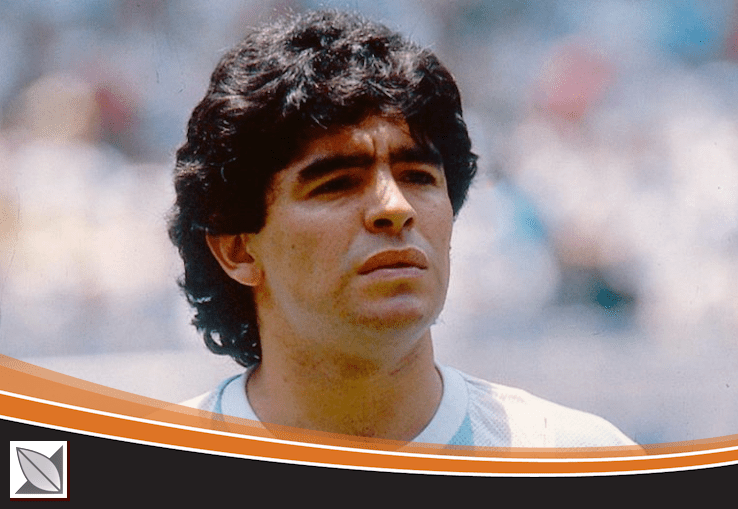A Tale of Two Goals: Maradona Hand of God and Goal of the Century in 1986

Football, in its rich tapestry of moments, has few that stand as polarizing and captivating as Diego Maradona's two goals against England in the 1986 World Cup quarter-finals. In a span of just five minutes, Maradona showcased the duality of the sport: the audacity to bend the rules and the ability to produce unparalleled artistry.
The Backdrop
The match between Argentina and England was more than just a World Cup quarter-final. Given the Falklands War just four years prior, the encounter was politically charged, adding another layer to the already intense footballing rivalry. Both nations sought victory, not just for progression in the tournament, but for national pride.
The "Hand of God"
Minutes into the second half, with the score level at 0-0, Maradona began his run towards England's goal. A misjudged header from England's Steve Hodge saw the ball loop towards Peter Shilton, the English goalkeeper. In what became one of the most controversial moments in football history, Maradona, seemingly defying his 5'5" frame, out-jumped Shilton and punched the ball into the net. The referee allowed the goal to stand, despite fervent protests from English players. After the match, when asked about the goal, Maradona cheekily remarked that it was scored "a little with the head of Maradona and a little with the Hand of God."
The "Goal of the Century"
Just five minutes after his notorious "Hand of God" goal, Maradona produced a moment of sheer brilliance. Receiving the ball in his own half, he embarked on a mesmerizing run, dribbling past five England players with a combination of speed, agility, and precision before coolly slotting the ball past Shilton. The sheer audacity and beauty of the goal left spectators in awe. It was aptly described by the match commentator as the "Goal of the Century".
Impact on the Match and the Tournament
Maradona's goals set the tone for the rest of the match. Although England managed to pull one back through Gary Lineker, Argentina held on to win 2-1. With Maradona at the helm, Argentina continued their impressive form, eventually lifting the World Cup after defeating West Germany in the finals. Maradona's performances throughout the tournament solidified his reputation as one of the greatest footballers of all time.
Reflections and Controversies
The "Hand of God" goal has been a topic of debate and discussion for decades. Many view Maradona's act as unsportsmanlike, believing that it tarnished what was otherwise a remarkable footballing display. Others, however, see it as a moment of cunning, a representation of a player doing whatever it takes to win for his country. The goal has also been analyzed in the context of the Falklands War, with some suggesting that Maradona saw it as a form of retribution against England.
The Legacy of the Goals
While the "Hand of God" remains controversial, the "Goal of the Century" is universally acclaimed. It epitomizes Maradona's footballing genius, encapsulating his ability to single-handedly change the course of a game. These two goals, so different in nature, are a testament to Maradona's enduring legacy—flawed, yet incredibly talented.
Maradona: The Man and the Legend
Diego Maradona's life was filled with highs and lows, both on and off the pitch. His exploits in the 1986 World Cup are a microcosm of his larger-than-life persona. He was a player who could produce moments of magic on the field, while also being mired in controversies off it. Yet, despite the many debates surrounding his character and actions, his talent remains indisputable. The two goals against England are a testament to the dichotomy of Maradona—both the flawed human and the footballing god.
Conclusion
The 1986 World Cup quarter-final between Argentina and England will forever be remembered for Maradona's two iconic goals. They encapsulate the essence of football—its unpredictability, its capacity for controversy, and its ability to produce moments of unparalleled beauty. While the "Hand of God" showcases the game's potential for contention, the "Goal of the Century" reminds us of why football is often referred to as the beautiful game. Both goals, in their own right, have etched Maradona's name in the annals of football history, making him an eternal figure in the sport's lore.